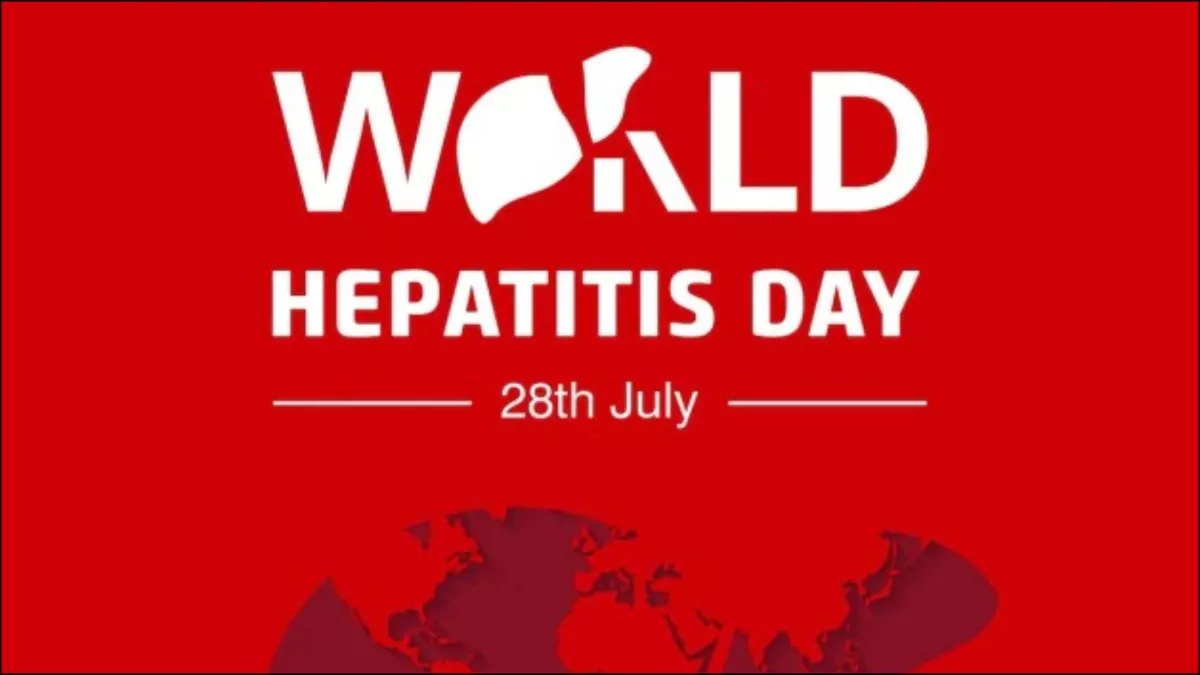World Hepatitis Day 2023: World Hepatitis Day is observed on July 28th each year to raise awareness about hepatitis, a group of viral infections affecting the liver. The day aims to promote the prevention, diagnosis, and treatment of hepatitis, as well as support those living with the disease.
Approximately 325 million people globally are affected by hepatitis, with many unaware of their condition. World Hepatitis Day encourages vaccination, safe practices, and access to healthcare services for all. Together, we can eliminate hepatitis as a public health threat and reduce its devastating impact on individuals and communities. This year’s theme suggested by WHO, ‘One Life, One Live’ also emphasises the importance of healthy liver to lead a good life.
World Hepatitis Day 2023: Date, Theme and Why is this day observed?
What is Hepatitis?
A kind of inflammation in the liver is known as hepatitis. The problem may go away on its own or worsen into cirrhosis, liver cancer, or fibrosis (scarring). The most frequent cause of hepatitis in the world is hepatitis viruses, although it can also be brought on by other infections, toxic substances (including alcohol and other medicines), and autoimmune illnesses.
What are the different types of Hepatitis?
There are 5 main hepatitis viruses, referred to as types A, B, C, D and E. According to WHO, these 5 types are of greatest concern because of the burden of illness and death they cause and the potential for outbreaks and epidemic spread.
Hepatitis A Virus (HAV): The hepatitis A virus (HAV) is found in the faeces of infected people and is most frequently spread by drinking contaminated water or eating tainted food. HAV can also get transmitted through specific sexual acts. Many times, infections are minor, and most patients recover completely and don’t contract HAV again. HAV infections can, however, potentially be serious and fatal. The majority of people in places with poor sanitation around the world have contracted this virus. There are HAV vaccinations that are both secure and efficient.
Hepatitis B Virus: It is possible to contract the hepatitis B virus (HBV) by coming into contact with infected blood, semen, and other bodily fluids. Infected women can pass on HBV to their newborns at the time of delivery, or even a family member can infect an infant in the early years of life. Also, HBV-contaminated injections given during medical procedures, injectable medication use, and donations of blood and blood products are also possible ways to transmit the disease. Healthcare professionals who suffer unintentional needle sticks while tending to HBV-infected patients are likewise at risk from HBV.
But, HBV prevention is possible with secure and reliable vaccinations.
Hepatitis C Virus: Most cases of hepatitis C virus (HCV) transmission involve contact with infected blood. This could occur through the use of injectable drugs, contaminated medical injections, and transfusions of HCV-infected blood and blood products. While less often, sexual transmission is still a possibility. and unfortunately, there is no vaccination.
Hepatitis D Virus: Hepatitis D virus (HDV) is a small, defective RNA virus that can only infect individuals already infected with the hepatitis B virus (HBV). HDV relies on HBV’s envelope proteins to complete its life cycle. It causes a more severe form of hepatitis than HBV alone and increases the risk of liver cirrhosis and liver cancer. Vaccination against HBV also provides protection against HDV infection.
Hepatitis E Virus: The main way that the Hepatitis E virus (HEV) is spread is through contaminated food or drink. HEV is a frequent contributor to hepatitis outbreaks in underdeveloped regions of the world and is increasingly acknowledged as a significant disease-causing agent in developed countries. HEV infection prevention vaccinations have been produced, however, they are not generally accessible.
Some preventive measures for Hepatitis are:
- Get vaccinated against hepatitis A and B.
- Use protection and precaution during physical contact.
- Avoid sharing needles: Never share needles or personal items that may be contaminated.
- Wash hands thoroughly and avoid consuming contaminated food or water.
- Be cautious with tattoos and piercings
- Get regular health check-ups and screenings.
On this World Hepatitis Day, let us unite to raise awareness about hepatitis and its prevention. By promoting vaccination, safe practices, and regular health check-ups, we can work towards eliminating this global health threat. Together, we can build a healthier world, free from the burden of hepatitis, ensuring a brighter future for all.
Important Days and Dates in August 2023
Categories: Trends
Source: vcmp.edu.vn
